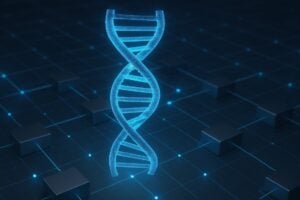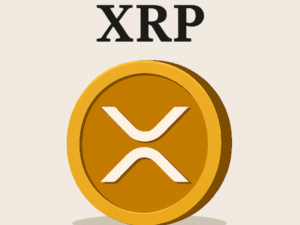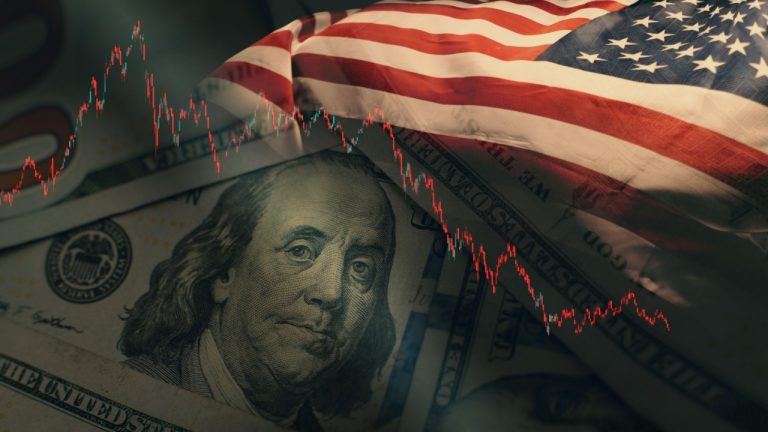
After 23andMe declared bankruptcy in the United States on March 23, 2024, the Sei Foundation, linked to the Sei blockchain network, announced its intention to consider acquiring the genetic testing company. The goal would be to protect the privacy of the genetic data of about 15 million users, offering them ownership and direct control of the information through secure and encrypted blockchain tools.
Genetic data and blockchain: the proposal of the Fondazione Sei
The project, announced in a post published on March 27 on the official X account of the Sei network, aims to address an issue of growing importance: the security of bio-genetic data in the digital age, especially in contexts of financial instability like the current one of the American biotech company.
The foundation stated that, in the event of an acquisition, it would transfer all genetic information onto the blockchain. This would allow, according to the promoters, to “return data ownership to users” through encrypted and confidential transfers.
“We believe that sovereignty over personal data is a matter of national security. When an American biotech pioneer faces a bankruptcy situation, the personal genomic data of millions of people become vulnerable to entities that may not share the same values of transparency and open access.”,
it reads in the official statement of the Fondazione Sei.
Bankruptcy 23andMe and genetic data privacy
These statements are part of a context of increasing attention to the management of sensitive information, particularly after 23andMe requested access to the protection provided by Chapter 11 at the Bankruptcy Court of the Eastern District of Missouri. The company has assured that this procedure will not result in “any change in the way customer data is stored, managed, or protected.”
However, the announcement has immediately reignited the debate on genetic privacy and the protection of digital rights. Several experts and authorities fear that genetic information, already stored on a large scale by private companies, could be at risk in the event of non-transparent acquisitions or forced asset sales.
Institutional reactions: call for data deletion
In response, the procuratore generale dello Stato di New York, Letitia James, e quello della California, Rob Bonta, have publicly invited 23andMe users to contact the company to request the deletion of their personal data, including any DNA samples. According to the two officials, the current state laws fully recognize users’ right to privacy and management of genetic data.
Blockchain and genetics: a new frontier for data security
The corporate crisis of 23andMe thus opens a potential window to experiment with new forms of decentralized management of personal information. In this context, the proposal from the Sei Foundation represents an innovative solution, supported by blockchain technology, which would allow completely transparent and traceable data management, while ensuring security and confidentiality through encryption.
Blockchain and genetics: a combination still in its emerging phase, but one that could mark a turning point in the field of bioinformatics. Through the use of distributed digital ledgers, individuals’ genetic information would remain under their full control. At the same time, the risk of data being transferred to third parties without consent would be neutralized, as often happens following acquisitions or corporate failures.
Effects on the crypto ecosystem: the case of the SEI token
Following the announcement from the Fondazione Sei, the SEI token of the namesake blockchain network experienced a brief bull, rising from 0.209 to 0.215 dollars, marking an increase of approximately 3%. A signal that the market has positively perceived the initiative, even though it is still in the preliminary phase.
Technical and legal challenges of the acquisition
However, there is no shortage of concerns: several observers highlight the technical, legal, and financial difficulties associated with an operation of such magnitude. The mere possibility of acquiring and transferring the sensitive data of millions of people does not guarantee greater security in itself, especially if the process is not accompanied by a clear regulatory framework, operational transparency, and direct involvement of the users.
Digital sovereignty and bioethics in the blockchain era
Furthermore, the theme of digital sovereignty and the protection of personal bioidentity requires today an in-depth reflection, both on the technological level and on the ethical one. The blockchain, while on one hand represents an opportunity to decentralize the control of information, on the other hand imposes new responsibilities in terms of data governance.
It should be remembered that 23andMe collects and analyzes genomic information from millions of subjects worldwide. According to the company, the security protocols will not undergo changes despite the failing context. However, the possibility that this information could end up in third-party hands within a judicial process has raised the alarm.
Conclusions: blockchain as a guarantee for genetic data?
In summary, the intervention of the Fondazione Sei offers a concrete proposal to protect genetic data through blockchain, bringing attention back to one of the most delicate topics of the digital age: the control and ownership of personal information. Although still far from being realized, the acquisition hypothesis sheds new light on the future of biometric data management and could redefine the way individuals and companies approach bioethics in the technological context.
The next step will be to observe if the Sei Foundation will proceed concretely with the acquisition of 23andMe, and what the operational, legal, and regulatory implications will be for the healthcare, technology, and data protection sectors.

 4 days ago
11
4 days ago
11









 English (US) ·
English (US) ·